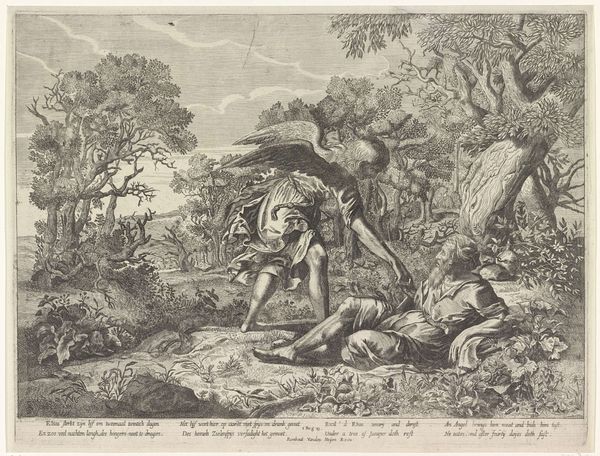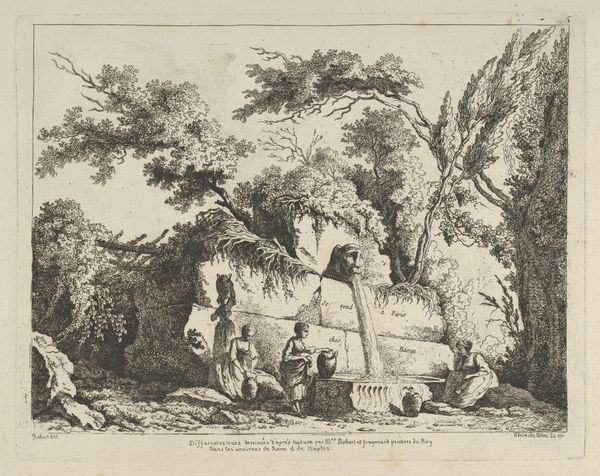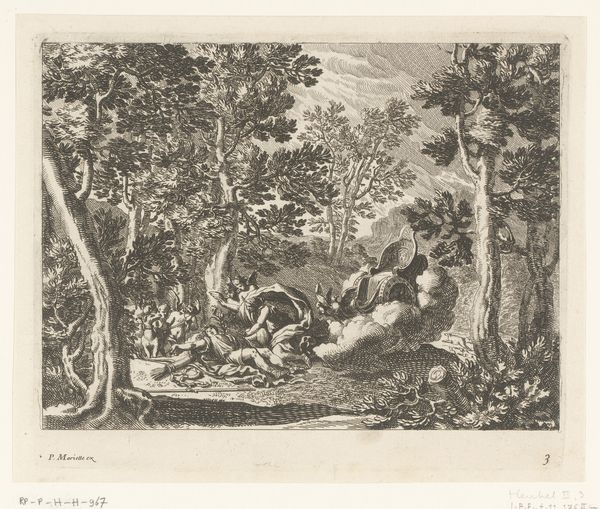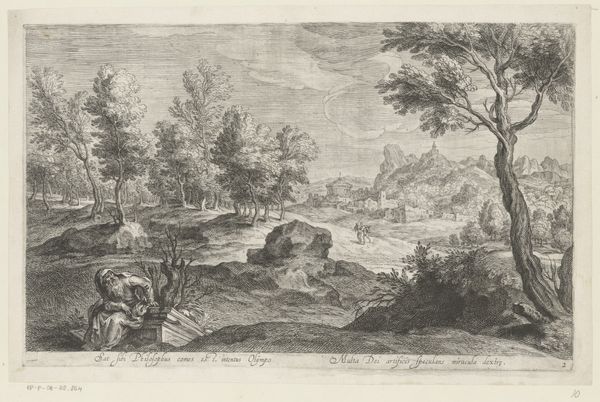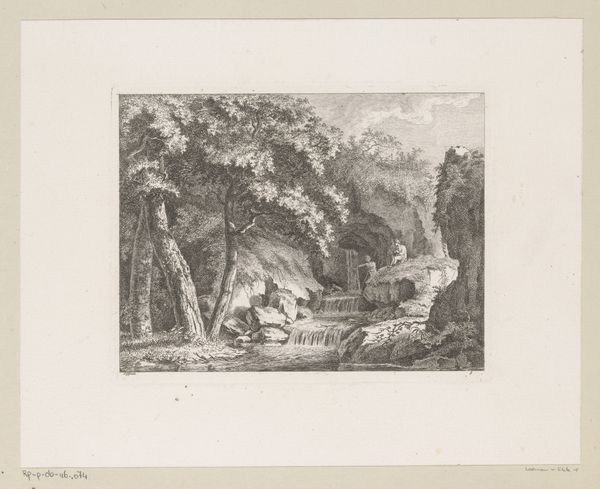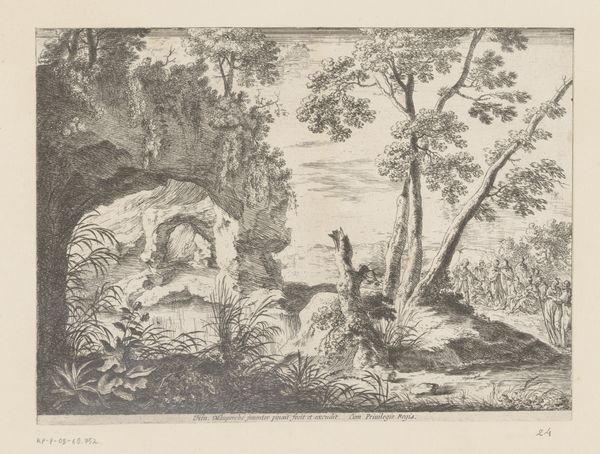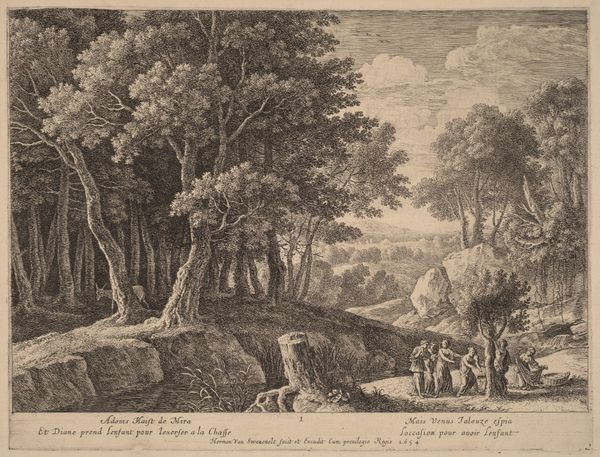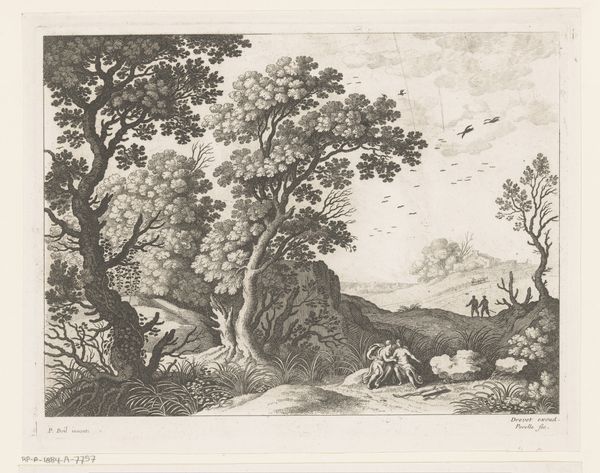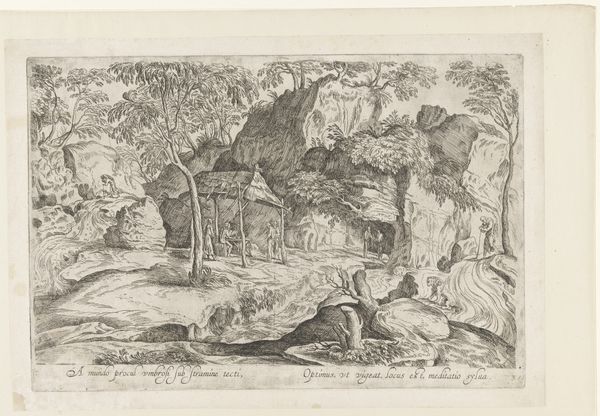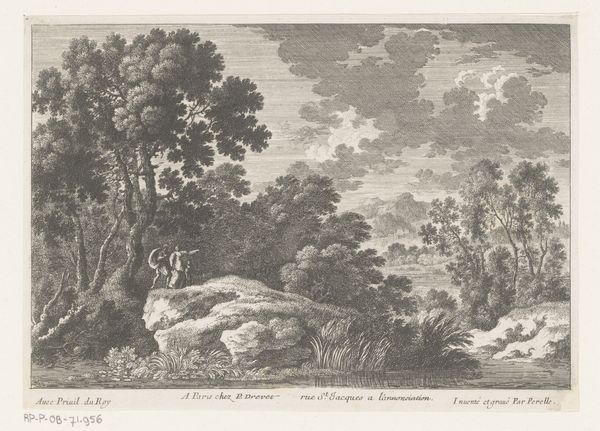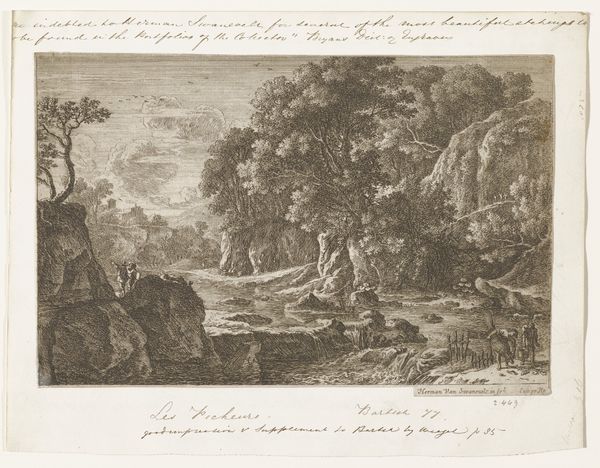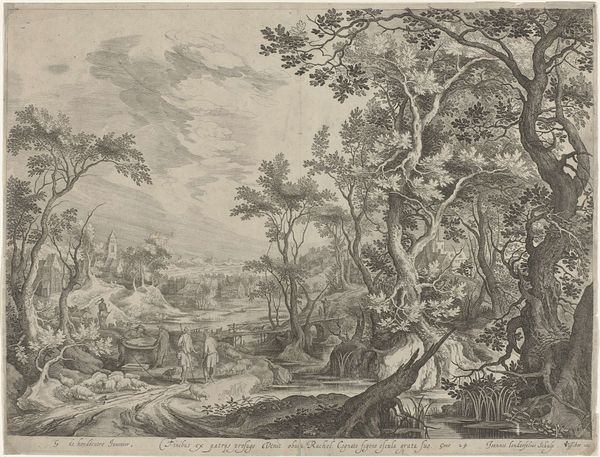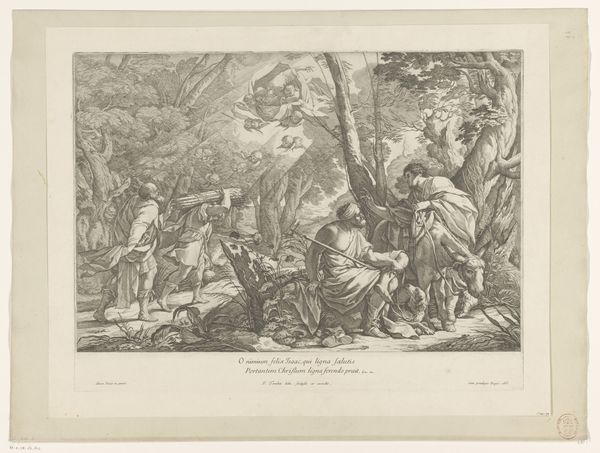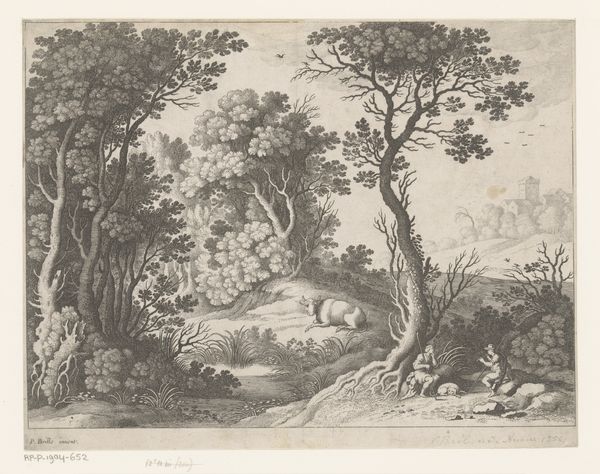
print, engraving
#
baroque
# print
#
old engraving style
#
landscape
#
figuration
#
history-painting
#
engraving
Dimensions: height 388 mm, width 490 mm
Copyright: Rijks Museum: Open Domain
François Tortebat etched this depiction of "Elias in de vurige wagen" – Elijah in the Fiery Chariot – in 1665. Here, the prophet Elijah ascends to heaven in a chariot of fire, a symbol of divine power and transition. The gesture of Elijah, reaching upwards, echoes across time, reminiscent of figures in ancient Roman art imploring their gods. This motif of ascension, and the reaching figure, appears again and again throughout history, from religious icons to secular art. We see it, for example, in depictions of saints ascending to heaven during the Renaissance, their outstretched arms expressing spiritual ecstasy. The fiery chariot itself can be viewed as a manifestation of the collective human desire for transcendence. Fire, an ancient symbol of transformation, represents a powerful force, engaging viewers on a deep, subconscious level. Ultimately, the symbols within this etching reveal the non-linear progression of cultural memory. These motifs have resurfaced and evolved, taking on new meanings as they journey through time.
Comments
No comments
Be the first to comment and join the conversation on the ultimate creative platform.
